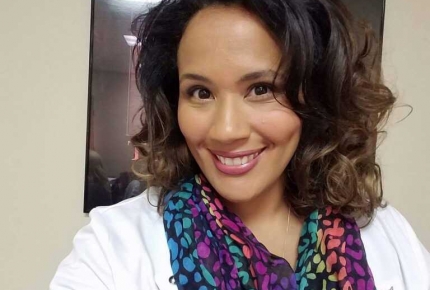2020 Maine Session Summary
Victory in the fight against cancer requires bold new public policies that promote cancer prevention, early detection of cancer, and expand access to quality, affordable health care.
Fighting cancer shouldn’t just involve drugs and medical treatments.
It also should involve care focused on improving the cancer patient’s quality of life through palliative care.
This includes a coordinated care plan amongst all doctors, emotional support for the patient and their caregiver and a focus on less pain during and after treatment.
As Breast Cancer Awareness Month comes to a close, two ACS CAN volunteers and breast cancer survivors shared their stories with us.
They each had very different experiences during their treatment. Maria’s doctors were focused on improving her quality of life through a coordinated palliative care plan. Meanwhile, Barb did not receive this kind of care, despite her desire to have it.
 Maria Moore, an ACS CAN volunteer from Tennessee and a hospice nurse, had doctors who incorporated a palliative care plan into her cancer treatment.
Maria Moore, an ACS CAN volunteer from Tennessee and a hospice nurse, had doctors who incorporated a palliative care plan into her cancer treatment. How did your doctors work to improve your quality of life during your cancer treatment?
There were many specialists working together to ensure the best possible outcome for my health and well-being. This well-being included my physical health, mental health, as well as my emotional well-being. I had what is called a breast nurse navigator, who is a nurse certified in breast health and has numerous resources to help patients battling breast cancer. She was and is an angel!
Why is it so important that breast cancer patients receive palliative care to improve their quality of life during treatment?
Palliative care is vital for patients battling cancer, especially breast cancer. The team approach of a clinical team working together and sharing information for the patient’s benefit is proven to produce optimal outcomes. Patients and families who understand the patient's disease process, and what is planned to fight the cancer have far less anxiety about what lies ahead.
How has being a hospice nurse given you a greater understanding to the type of care patients need?
As a hospice nurse and a clinical liaison for a hospice agency, I work daily alongside patients and families who are terrified about their cancer diagnoses. They are unsure of the options presented to them, and how their options may affect their health and their families. Palliative care is so critical to aid patients in evaluating their options for treatment, while at the same time weighing quality of life. Palliative care provides a team of clinicians to promote the best possible quality of life. Isn't quality of life what we are all chasing after?
What could be done to make sure more cancer patients receive a better type of care during their treatments?
To improve quality of life care for all cancer patients, education is crucial. Palliative care education must be integrated into medical professionals' curriculum and clinical training on all levels. Palliative care must be normalized so that the average citizen understands how such an approach benefits them and their loved ones. Palliative care should not only be afforded to a hospice nurse who knows how to navigate medical pathways and access the best care available. It should be available to all cancer patients.
Why is it so important that breast cancer patients receive palliative care to improve their quality of life during treatment?
Breast cancer patients are dealing with a cancer that not only affects their health, but also affects their feelings of self-worth and body image. Receiving palliative care will not only help with medical issues, but also with the psychological issues. Maintaining a good quality of life is hard when you don't see yourself as a woman or less of woman. Without proper support, these issues can hinder a woman's recovery or lessen her will to fight.
What could be done to make sure more cancer patients receive a better type of care during their treatments?
To improve the quality of life of cancer patients, palliative care needs to be offered at the time of diagnosis. Knowing that a team is in place to help you deal with each step of treatment will help you maintain a good quality of life. Too many think that it is just end of life care and that image needs to be changed so that patients are willing to accept palliative care when it is offered. How do we do this? Through the Palliative Care Hospital, Education and Training Act (PCHETA) in congress right now.
Join Barb and Maria and ask your senator to pass our bill to improve the quality of life for cancer patients and survivors.